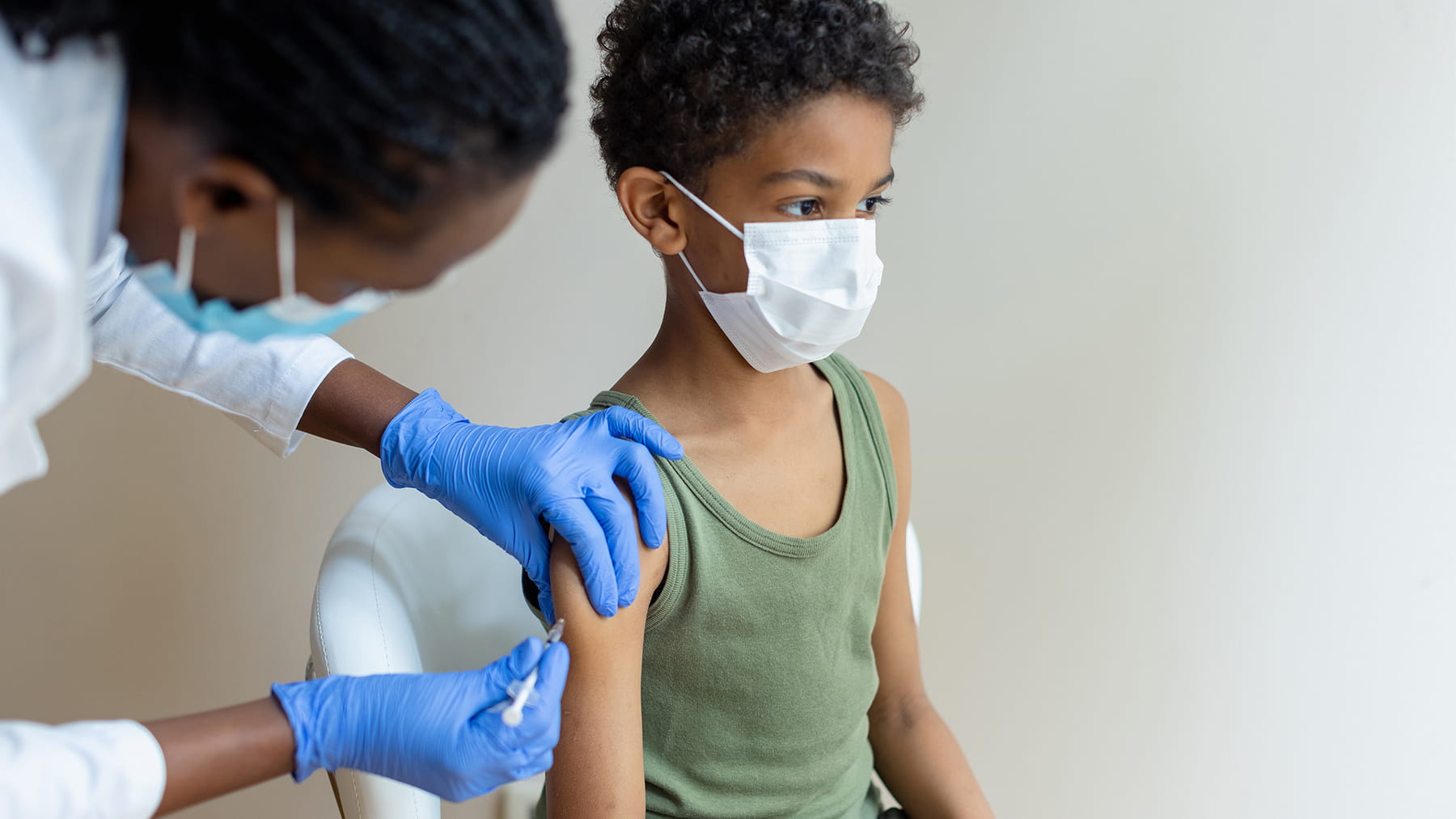Pfizer’s COVID-19 vaccine is now authorized for children 5 and older — here’s why they should get it

The U.S. Food and Drug Administration (FDA) has authorized the Pfizer-BioNTech COVID-19 vaccine for emergency use in those 5 through 11, paving the way for mass vaccinations of school-age children in the coming weeks and months.
The move comes more than two months after the FDA fully approved the vaccine for those 16 and older. Prior to that, the FDA had authorized the emergency use of COVID-19 vaccines for adults, and had given the Pfizer-BioNTech COVID-19 vaccine emergency use authorization for children ages 12 through 15.
Until now, though, children younger than 12 had not received COVID-19 vaccines outside of clinical trials — which means that if you’re a parent of a young child, you may have questions about what the vaccine is and how safe and effective it may be. Here’s what we know.
Is the approved COVID-19 vaccine the same for children as adults?
Yes, but the dosage for younger children is smaller — one-third the adult dose. Under the recommended regimen, children ages 5 to 11 will receive two 10 microgram doses of the vaccine administered 21 days apart. The dosage used for those 12 and older is 30 micrograms. The lower dosage was carefully selected for safety and tolerability in younger children.
Was the vaccine tested on young children?
Yes. In September 2021, Pfizer and BioNTech announced positive results in their study of 2,268 participants ages 5 to 11, showing strong immune response in the children a month after their second dose. This compared well with a control group of participants ages 16 to 25 who were administered the larger, 30 microgram two-dose regimen. Side effects were comparable in both groups as well.
Will children younger than 5 be eligible for a COVID-19 vaccine?
Not yet, but the vaccine is being tested in children 6 months and older, and we expect to see results from those studies soon.
Where can young children get a COVID-19 vaccine?
You can check your local pharmacy or state and local health department websites for more information on where to get a vaccine for your child. Your child’s health care provider or pediatrician may be able to provide information as well.
If you're looking to schedule a vaccine in central Ohio: The Ohio State University Wexner Medical Center will begin offering appointments for pediatric COVID-19 vaccines for its established patients ages 5-11 at the Internal Medicine and Pediatrics Grandview and Internal Medicine and Pediatrics Hilliard locations beginning Nov. 8.
The medical center will also begin offering pediatric COVID-19 vaccines at 600 Ackerman Road location for both Ohio State and non-Ohio State patients age 5-11 on Nov. 9. Parents and guardians can schedule vaccinations at Ohio State by calling 614-688-8299. To schedule online, they need to have a personal MyChart account and request proxy access to be able to schedule their child. Learn how to request proxy access on the MyChart FAQ page.
Can I feel safe getting my child a COVID-19 vaccine?
A lower dose of the vaccine was chosen for children ages 5 to 11, compared with older children and adults, to optimize safety, tolerability and efficacy. The safety of the vaccine was monitored closely during clinical trials, with the most common side effects being temporary injection site reactions, fever and fatigue — similar to what’s been seen in the older age groups.
Serious long term-side effects from vaccines are extremely unlikely with any type of vaccination, including COVID-19 vaccines. Previous data has shown that if side effects occur, most do so within six weeks.
Why should I vaccinate my child against COVID-19?
In general, children with COVID-19 tend to have less risk for severe illness compared with adults — although serious complications, including hospitalizations and deaths, do occur. Vaccination can also reduce the likelihood of transmission to others, including family members who are too young to receive the vaccine, and can help prevent the kind of outbreaks that close schools and child care centers.
Widespread vaccination is one of the key tools we have to help end the COVID-19 pandemic.
Ashley Lipps is an infectious diseases physician at The Ohio State University Wexner Medical Center and an assistant professor in the Division of Infectious Diseases at The Ohio State University College of Medicine.




